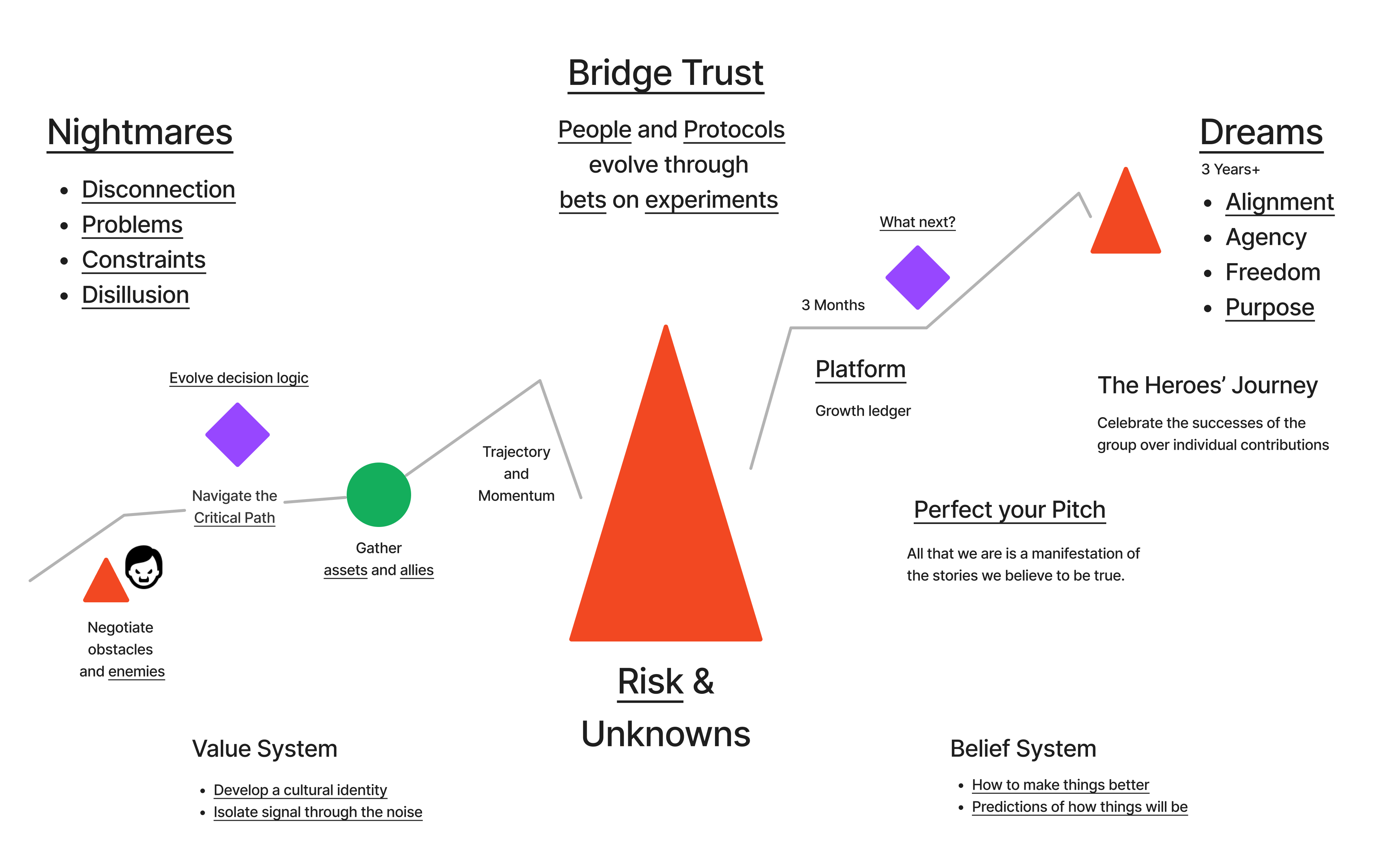People
The quality of your life is a direct reflection of the quality of the people you surround yourself with.
🗃️ Archetypes
2 items
🗃️ Capabilities
16 items
🗃️ Habits
2 items
🗃️ Psychology
4 items
🗃️ Connections
4 items
🗃️ Work
2 items
Play long term games with long term people.
Heroes Journey
What assets, best practices, allies and their range of capabilities need to be gathered to navigate life's journeys successfully?

If you can't picture success how will you recognize it?
Start with the end clearly in mind then work back to imagine how you will get there.
Narratives shape perception of reality. Leverage the organising power of intent through succinct communication that delivers the right message at the right time.
Explore ideas, don't become owned by them.
Fulfilment
What do people need? how do they attract that? and how they recognise they are on track?
Success is a state of mind that comes from flow.
- Health Longevity
- Breath
- Nutrition
- Physical Agility
- Mental Fitness
- Environment
- Shelter
- Surroundings
- Emotional
- Culture
- Community
- Work
- Purpose and Meaning
- Capabilities vs Requirements
- Spiritual
- Connection
Humans have a basic need to feel understood and appreciated. How will AI affect this need?
Mindset
Leaders shape culture, culture builds trust, trust builds loyalty, loyalty creates liquidity, liquidity enables the exploration of ideas, the exploration of ideas leads to progress.
- Intellectual traits elevate intellectual standards.
- Courage
- Respect
- Honesty
- Humility
- Integrity
- Perseverance
- Autonomy
- Empathy
- Purpose
- Intellectual standards improve ability to reason.
- Accuracy
- Precision
- Clarity
- Depth
- Relevance
- Significance
- Logic
- Fairness
- Sufficiency
- Breadth
- Reasoning: evolves intellectual traits.
- Purposes
- Inferences
- Questions
- Concepts
- Points of view
- Implications
- Information
- Assumptions
Capabilities
Capability equates to evolving systems and expertise to effectively and consistently focus time and energy to produce desired outcomes. Capabilities that will be in most demand in the future: